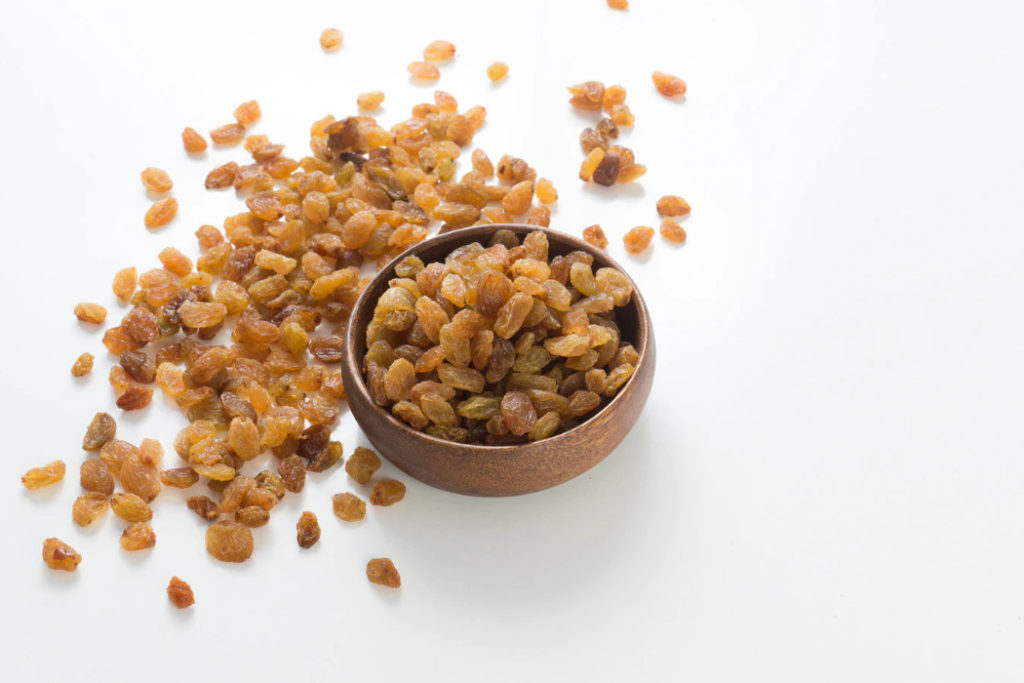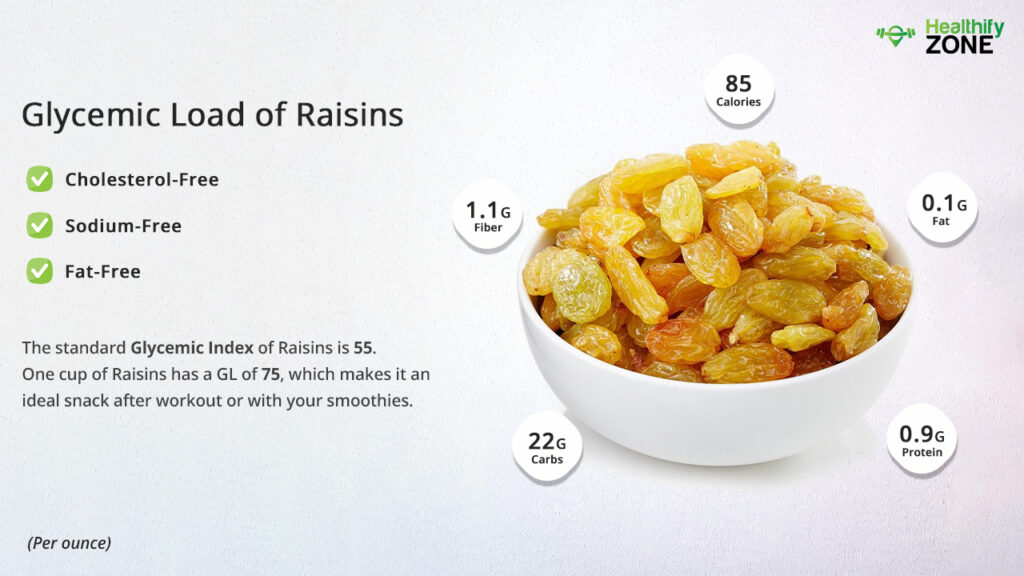The measure of carbohydrate present in a food item with the pace with which it increases the blood glucose levels is called Glycemic Load. A simple way of making healthy diet choices is following the Glycemic Index, which compares and shows the alternative sources of nutrients according to your blood glucose levels. Glucose results in a higher blood glucose response compared to fructose.
Despite being so tiny, raisins are packed with energy, rich in fiber, vitamins, and minerals. The Internation GI measures that the GI of raisins is 55. They are shriveled morsels that were originally grapes that were dried in the sun or food dehydrators. They are naturally sweet, high in sugar and calories. They are very beneficial for our health if we eat them in moderation. You can eat it when you crave candy or sweets.

Raisins are the best healthier alternative when you are craving something sweet, and it comprises healthy nutrients like
- Fiber
- Iron
- Calcium and Boron
- Antioxidants
- Antimicrobial compounds
How to Calculate Glycemic Load of Raisins?
The standard Glycemic index of raisins is 55. The high glycemic index of the fruit helps in reducing the risks related to cardiovascular diseases. If we want to talk about diet, the key to prevent diabetes or any chronic illness is to distribute the carbohydrate consumption content throughout the day and manage the sugar levels in the body correctly—however, the glycemic load for one cup of chopped watermelon= 5.2 approximately which makes it an extremely favorable food.
The Formula/Procedure For Calculation of Glycemic Index of the Watermelon :
GL = GI * carbs / 100
where
- GL – glycemic load;
- GI – glycemic index;
- and carbs – the amount of carbohydrates in the portion.
| SL.NO | RAISINS BY WEIGHT IN (g) | GLYCEMIC LOAD |
| 1. | 10 g of Raisins | 4.35 (low) |
| 2. | 25 g of Raisins | 10.9 (medium) |
| 3. | 50 g of Raisins | 21.75 (high) |
| 4. | 100 g of Raisins | 43.5 (high) |
| 5. | 250 g of Raisins | 108.75 (off the charts) |
| 6. | 1 Cup of Raisins (150 g) | 72 (very high) |
Are Raisins Safe to Consume If You Have Diabetes?
People with diabetes can eat raisins and must have a balanced diet. Raisins have natural sugar, so even when it is healthy, it can cause a spike in your blood glucose levels. The key here is that you must consume it in moderation. You can have 10 g of raisins, which has a glycemic load of 4.35, which would not increase your blood sugar levels.
Can I Eat Raisins During a Fat-Loss Diet?
You can consume raisins if you are on a fat-loss diet. If you are looking for good results, you should avoid having more than10 g of raisins.

- 50 g of raisins is something which shoud be taken rarely if you are on a fat-loss diet.
- Raisins as an alternative for sweets is premissible in a fat-loss diet.
Can I Eat Raisins During a Low-Carbohydrate Diet?
Even though raisins are healthy, they have carbohydrates, which is still going to count. You must be careful about your portion size to make sure you do not eat too many servings of carbohydrates. We suggest you not eat more than 15g of raisins at once.
Are Raisins High in Sugar?
Raisins are not really low-calorie or low-sugar treats and are known as nature’s candy. 10 g of raisins have 7.9 g of carbs and 5.9 g of sugary. Although sugary, this would not increase your blood sugar levels, and this would be healthy.